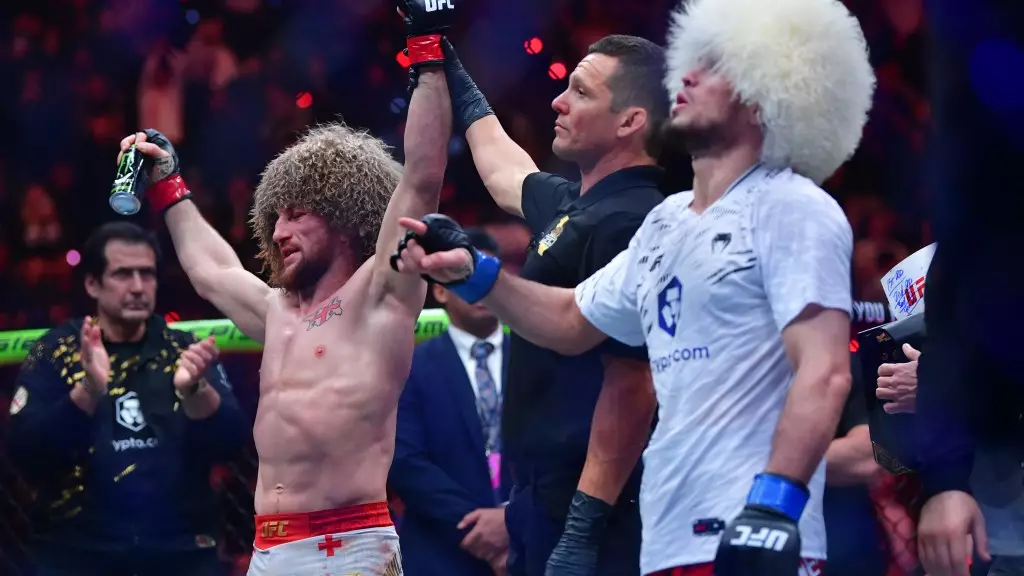Umar Nurmagomedov’s recent bout against Merab Dvalishvili at UFC 311 not only showcased skill and determination but also sparked significant debate regarding the legitimacy of the fight’s outcome. While Dvalishvili celebrated his unanimous decision victory, Nurmagomedov emerged from the octagon with lingering doubts about the fairness of the decision. In a sport often marred by subjective judging, Nurmagomedov’s assertion that he was the rightful winner of the match is a reflection of his inner conviction and competitive spirit.
Immediately after the fight, Nurmagomedov made it clear that he held no excuses for the decision, demonstrating a hallmark characteristic of elite athletes: accountability. Despite this, he expressed an unwavering belief in his performance and the notion that he deserved to have his hand raised at the end of the bout. His post-fight sentiment captures the complexity of a fighter’s experience—one can compete valiantly yet still feel the sting of an unjust outcome. Nurmagomedov’s assertion that “even the whole world” can’t change his perception of the match underscores the powerful mental aspect of mixed martial arts, where belief can sometimes transcend reality.
Adding to the narrative of his fight, Nurmagomedov disclosed an injury he sustained at the beginning of the match which, as reported, was a hand injury. This revelation poses questions about the nature of competitive sports: how much a single injury can influence the dynamics of a fight. Although Nurmagomedov fought competitively despite his setback, the mental toll of managing physical limitations is something that only he truly understands. Professional fighters are often left to navigate delicate balances, fighting not only their opponents but also their own injuries and pain thresholds.
In the world of UFC, expectations can be both a blessing and a curse. Fighters like Nurmagomedov often find themselves in the spotlight, not only depending on their own performance but also on the interpretations of judges and analysts. As he processes this loss, Nurmagomedov must reckon with both the disappointment of the judges’ scorecards and the immense pressure that comes with living up to the high expectations placed upon him by fans and promoters.
Despite the setback, Nurmagomedov’s resilience shines through in his statement of intent to recover and return stronger. The phrase “deal with the injuries and get back on track” encapsulates the relentless spirit that is crucial in the competitive sphere of mixed martial arts. For Nurmagomedov, the challenge now lies in channeling his disappointment into motivation for future bouts, reaffirming his position in the bantamweight division. The fight at UFC 311 may have concluded on a note of contention, but for Nurmagomedov, it marks a chapter in a larger narrative of perseverance and ambition in the quest for greatness.
Thus, as the MMA community continues to discuss the implications of his recent bout, followers of the sport should recognize that each fight nurses its own set of complexities—rivalries, injuries, and perceptions making the octagon a realm of both physical and psychological warfare.

